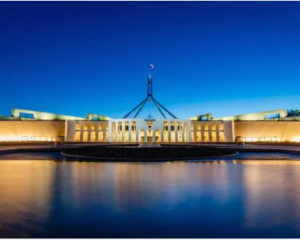The Fair Work Act mandates a meeting of an Expert Panel from the Fair Work Commission (the Commission) to review the national minimum wage each year. The decision is based on a range of considerations which include the modern awards objective and those from economic and labour market perspectives.
Background
This year’s panel has decided on a 1.75% increase to the national minimum wage, with essential services workers being the first to receive the new rate. 122 different modern award categories (which denote vocational classes) have been classified into three groups. The new minimum wage’s effective date is determined by these groups.
Staggered Implementation
In order to account for current economic circumstances, the operative date of the new minimum wage has been staggered. The Fair Work Act has a concession allowing for ‘exceptional circumstances’ to justify the postponement of any such operative date. This is breaking in tradition with the conventional implementation date of July the 1st. This time round, only those working in a group one award job will receive the new minimum at that date.
Figures and Dates
The 2019-2020 decision has stipulated a 1.75% increase in minimum wage. This takes the new minimum wage to $753.90 per week and a $19.84 hourly rate. From the previous minimum, this 1.75% rise represents an increase of $13 per week. The increase is projected to affect more than 2.2 million Australians’ pay rates. However, it’s difficult to put an exact figure on this, as we continue through a number of unpredictable months. The date of effect for the increase is listed below for each group:
July 1st 2020, – Group One Awards
November 1st, 2020 – Group Two Awards
February 1st, 2021 – Group Three Awards
For more detailed classifications of each groups’ awards, please click here.
Further Comments
As alluded to above, the extraordinary circumstances perpetuated by the COVID-19 crisis have led the commission to adopt a more ‘nuanced’ approach to staggering implementation of the new rate. An employer’s group has made various submissions for consideration to the Fair Work Commission, including a call for a wage freeze, but this has been dismissed as potentially resulting in too greater hardship for some households.
The wage increase remains a contentious issue, despite the formal announcement. Many feel it is not sufficient to keep masses of households above the poverty line, while the economic plight continues. Union demands for a 4% increase were met with concern and ultimately dismissal by the Commission. Current thinking is that a pay rise is better than nothing but worry looms regarding individuals’ and families’ abilities to stay afloat over the coming months.
The increase in minimum wage will hopefully provide benefit to many Australians in need. Staged increases will present difficulty for many but have clearly been planned around pressing economic and professional circumstances. If you’re looking for more information on the national minimum wage increase or any of its implications, get in touch with your Morrows advisor.





